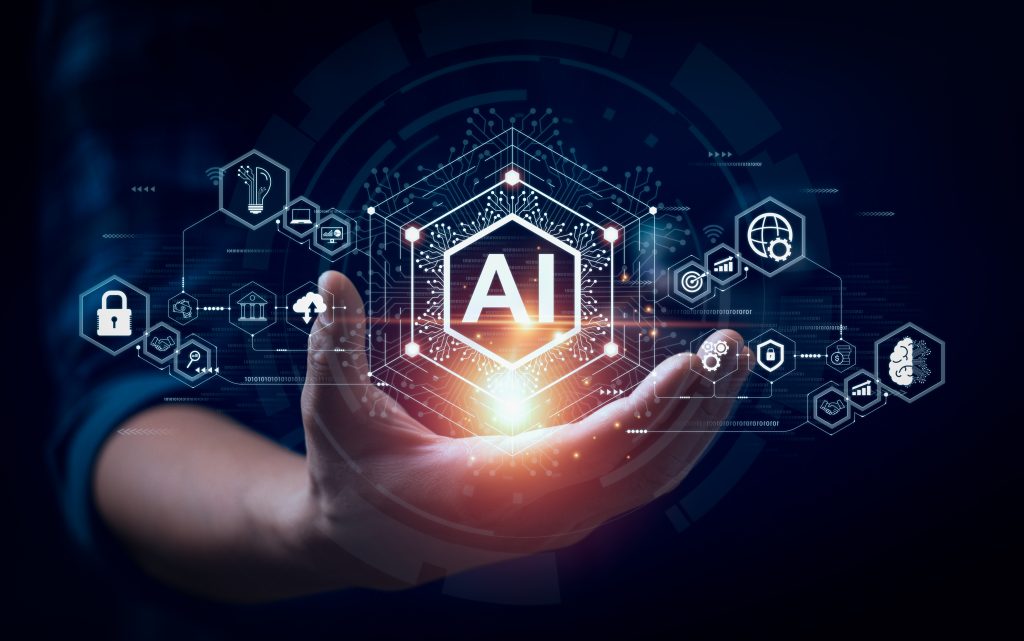
Introduction
Artificial Intelligence, or AI, has become more than just a buzzword in recent years. It has become a fundamental part of the tech landscape, with its applications spanning across industries. But what exactly is AI, and how is it reshaping the tech sector?
Understanding AI
What is AI?
AI refers to the simulation of human intelligence in machines that are programmed to think and learn like humans. This includes tasks such as problem-solving, speech recognition, decision-making, and more.
Types of AI
There are two main types of AI: Narrow AI and General AI. Narrow AI, also known as Weak AI, is designed to perform a narrow task, such as virtual assistants like Siri or Alexa. General AI, on the other hand, would have the ability to understand, learn, and apply knowledge across different domains, akin to human intelligence.
AI in the Tech Sector
AI’s impact on the https://tipsblog.de/ is profound, touching every aspect of technology development and deployment.
AI in Software Development
In software development, AI is revolutionizing the way applications are built and deployed. From automating testing processes to optimizing code, AI is helping developers work smarter and faster.
AI in Hardware Development
In hardware development, AI is being used to improve the performance and efficiency of devices. For example, AI-powered chips are enabling faster processing speeds and better power management in smartphones and other gadgets.
AI in Cybersecurity
Cybersecurity is another area where AI is playing a crucial role. AI algorithms can detect and respond to cyber threats in real-time, helping organizations stay one step ahead of hackers and cybercriminals.
AI in Customer Support
AI-powered chatbots and virtual assistants are transforming customer support by providing instant, personalized assistance to users. These AI-driven systems can handle a wide range of inquiries, freeing up human agents to focus on more complex issues.
AI in Data Analysis
Data analysis is essential for tech companies to understand user behavior and make informed decisions. AI algorithms can analyze vast amounts of data quickly and accurately, uncovering valuable insights that humans might overlook.
AI in Marketing
In marketing, AI is revolutionizing how companies target and engage with customers. AI-powered tools can analyze consumer data to personalize marketing campaigns, predict consumer behavior, and optimize ad spending for better ROI.
Benefits of AI in Tech
The integration of AI into the tech sector brings forth numerous benefits.
Efficiency
AI automates repetitive tasks, allowing tech professionals to focus on more strategic and creative endeavors. This leads to increased productivity and faster time-to-market for new products and services.
Innovation
AI fosters innovation by enabling tech companies to explore new possibilities and push the boundaries of what’s possible. From self-driving cars to AI-powered healthcare solutions, the possibilities are endless.
Challenges and Limitations of AI in Tech
However, AI also presents its fair share of challenges and limitations.
Ethical Concerns
As AI becomes more advanced, ethical considerations surrounding its use become increasingly important. Issues such as data privacy, algorithmic bias, and job displacement need to be addressed to ensure AI is used responsibly and ethically.
Job Displacement
One of the biggest concerns surrounding AI is the potential for job displacement. As AI automates more tasks, there is a risk that certain jobs could become obsolete, leading to unemployment and economic instability.
The Future of AI in the Tech Sector
Despite these challenges, the future of AI in the tech sector looks promising.
Integration and Expansion
AI is expected to become even more integrated into every aspect of technology, from development to deployment. As AI technology continues to advance, we can expect to see even greater innovation and transformation in the tech sector.
Conclusion
In conclusion, AI is reshaping the tech sector in profound ways, from software development to customer support. While it presents challenges, such as ethical concerns and job displacement, the benefits far outweigh the drawbacks. As we look to the future, AI will continue to drive innovation and transformation in the tech industry, shaping the way we work, live, and interact with technology.













